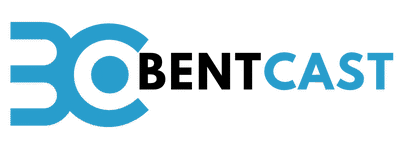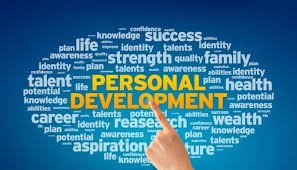Personal development is not a single achievement but a lifelong journey that involves refining skills, cultivating self-awareness, and striving toward purposeful living. While the idea of improving oneself has always existed, in today’s fast-paced world, intentional personal growth has become more essential than ever. It is about shaping habits, aligning values with actions, and steadily working toward becoming the best version of oneself.
Understanding Personal Development
At its core, personal development is the conscious pursuit of growth. Unlike external achievements such as wealth or recognition, it emphasizes internal progress—how you think, how you act, and how you relate to others. This growth can manifest in many areas: emotional resilience, communication, productivity, creativity, or leadership.
Self-improvement is not limited to fixing weaknesses. It also involves building on strengths. By leaning into natural talents while addressing areas of challenge, individuals create a balanced foundation for both personal and professional success.
The Role of Self-Awareness
Any meaningful journey toward self-growth begins with self-awareness. Understanding one’s motivations, triggers, and patterns helps in making conscious decisions rather than reacting automatically. Journaling, mindfulness practices, or feedback from trusted peers can shed light on blind spots.
Awareness also means recognizing limiting beliefs. These are the silent assumptions that keep people from reaching their potential—thoughts like “I’m not capable of leading” or “I’ll never succeed at this.” Challenging and reframing these beliefs creates room for growth and achievement.
The Power of Goal Setting
Goals act as guideposts on the path of self-development. They give clarity, direction, and purpose. However, not all goals are created equal. Effective goals are specific, realistic, and time-bound. Instead of saying, “I want to be healthier,” setting a goal like, “I will exercise three times a week for the next three months,” provides structure and accountability.
Breaking larger goals into smaller, actionable steps also builds momentum. Each small win fuels confidence and creates positive reinforcement, which makes it easier to sustain progress.
Building Habits That Last
Sustainable personal growth depends on habits. Willpower alone cannot carry long-term change. By creating systems that make positive choices easier and automatic, individuals reduce the friction between intention and action.
For example, someone seeking to read more can keep a book near their bedside instead of scrolling on their phone before sleep. Similarly, those wanting to improve fitness can schedule workouts as non-negotiable calendar events. These small shifts turn aspirations into consistent practices.
Emotional Growth and Resilience
Personal development is not just about achieving external success but also about handling challenges with strength. Life brings uncertainty, setbacks, and disappointments. Emotional resilience—the ability to adapt and recover—determines how one navigates these storms.
Practices such as meditation, gratitude journaling, or therapy can strengthen emotional well-being. Equally important is cultivating empathy and compassion, which improve relationships and expand perspective beyond personal struggles.
Lifelong Learning
True personal development requires curiosity and a commitment to learning. Reading books, attending workshops, or seeking mentorship keeps the mind open to new ideas. Skills that were relevant five years ago may not hold the same value today, making adaptability essential.
Lifelong learning also fosters creativity. Exposure to diverse fields—art, science, culture, philosophy—expands thinking and often sparks innovation in unexpected areas of life and work.
The Role of Health and Lifestyle
A strong body supports a strong mind. Physical well-being plays a crucial role in personal growth. Regular exercise, balanced nutrition, and adequate rest all contribute to sharper focus, improved mood, and higher energy levels.
Lifestyle choices extend beyond physical health. How one spends time—whether on meaningful pursuits or endless distractions—directly impacts progress. Being intentional about routines creates space for growth while avoiding burnout.
Overcoming Setbacks
No development journey is free of obstacles. Failure is not an endpoint but a teacher. Each setback provides lessons about strategy, effort, and resilience. Reframing failure as feedback helps individuals persevere rather than abandon their goals.
Building a support system also makes overcoming challenges easier. Surrounding oneself with positive, encouraging people creates accountability and motivation. Even the most driven individuals thrive when they know they are not alone in their efforts.
The Interplay of Relationships and Growth
Personal development does not happen in isolation. The quality of relationships influences how people grow. Strong networks of friends, mentors, or colleagues provide guidance and perspective.
Equally, developing communication skills—listening actively, expressing clearly, resolving conflicts—enhances both professional and personal relationships. As individuals improve themselves, they contribute positively to their communities, creating a cycle of shared growth.
Integrating Values with Actions
Growth without alignment can feel hollow. True fulfillment comes when personal values match daily choices. For instance, if one values creativity but spends all their time on routine tasks, disconnection may arise. Aligning actions with what matters most creates purpose and satisfaction.
Reflection exercises, such as writing down core values or evaluating how time is spent, help ensure alignment. This practice fosters authenticity and prevents drifting into unfulfilling pursuits.
Looking Toward the Future
As the world changes rapidly, personal development will increasingly demand adaptability. Emotional intelligence, digital literacy, and cultural awareness are skills that will define future success. Technology may alter how we learn and connect, but the fundamental need for growth will remain timeless.
At its heart, personal development is about progress, not perfection. Each step forward—no matter how small—creates a ripple effect that improves both the individual and the community around them.
Conclusion
Personal development is a lifelong endeavor rooted in awareness, action, and alignment. It involves setting clear goals, building sustainable habits, fostering resilience, and committing to continuous learning. More than a self-focused pursuit, it enhances relationships and strengthens communities.
By integrating values with daily choices and embracing both successes and setbacks, individuals carve paths toward purposeful, fulfilling lives. In the end, personal growth is not about reaching a final destination—it is about walking the journey with intention and courage.



